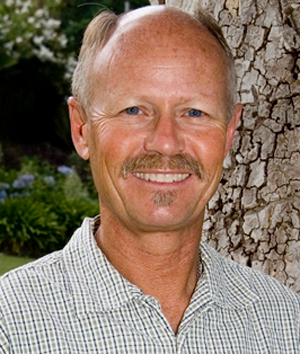Award-winning Communication and Cancer Research

September 19, 2017
By Daisy Santana
San Diego State University School of Communication professor Dr. Wayne Beach has been awarded two separate awards for his research on communication and cancer.
Beach was awarded the 2017 Distinguished Scholar Award from the Western States Communication Association (WSCA). Following this achievement, Beach was awarded the 2017 Translating Research into Practice (TRIP) Scholar Award.
Beach has been a member of WSCA for 43 years, where he founded the language and social interaction interest group. He was awarded by WSCA for his dedication and outstanding work with communication and cancer.
Heather Crandall, executive council member-at-large for WSCA, presented Beach with the award in Salt Lake City, Utah and said, “he has made a difference in the ways scholars and students think about the nature, function and scope of communication.”
At the 2017 Indiana University-Purdue University Indianapolis (IUPUI) TRIP Keynote Address on April 20, 2017, in Indiana, Beach was the keynote speaker.
Conversations about Cancer
Since the late 1980s, Beach has dedicated his research to communication and cancer, specifically their corresponding roles.
“When you’re dealing with anything you’ve got going on, communication is critical,” Beach said. “What I do is document the patterns that make that up. I find out what patterns are good, what patterns are bad and how we can enhance quality of care, quality of life and how we can improve society.”
Specializing in conversational analysis, Beach’s communication and cancer research started when his mother was diagnosed with cancer and passed four months later.
Eight years prior, a family donated a shoebox of audiocassette tapes to Beach with recordings of phone call conversations with doctors and family members during the time of their mother’s breast cancer diagnosis to the end of her life.
“I am on all these phone calls [with his mother during those four months] and I’m wondering what’s in that shoebox,” Beach said. “I came back and got to work on those.”
Beach then received a grant from the American Cancer Society.
“It turns out that this was the first natural history, ever, in the social and medical sciences, of a family talking through cancer on the telephone, and it was sitting in my office for eight years,” Beach said.
Beach wrote on these materials for a decade, including his book “A Natural History of Family Cancer: Interactional Resources for Managing Illness,” where he received a total of $2.2 million in grants for Phases I and II of his Conversations About Cancer project from the National Institute of Health (NIH) and the National Cancer Institute (NCI).
With the help of the grants, Beach turned the audiocassette tapes and his book into a theatrical play, “When Cancer Calls.”
The play joined his research with the arts to express the extensive and complicated dialogue that comes along with cancer diagnosis, treatment and prognosis. Thousands of people have experienced the role communication plays when it comes to cancer through “When Cancer Calls.”
What’s next?
Along with being a professor at SDSU, Beach is an Adjunct Professor in the Department of Surgery and a member of the Moores Cancer Center at University of California, San Diego. He is also faculty on the UCSD and SDSU Joint Doctoral Program in Public Health.
In collaboration with the UCSD Moores Cancer Center, Beach is working with PBS to produce “A Journey Through Breast Cancer,” a national documentary film.
The documentary film will examine one woman’s journey from her initial diagnosis, throughout her multiple surgeries, radiation and chemotherapy.
Following her and her spouse, the focus of the film is on the communication and social relationship aspect of her journey. The argument that Beach is trying to make it that communication is vastly more complex than cancer.
Beach says that along with the satisfaction and pride that follows these awards, they act as further motivation to continue his communication and cancer research.
The content within this article has been edited by Lizbeth Persons.
More PSFA Stories